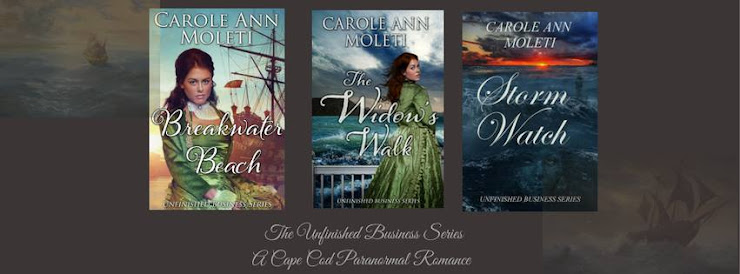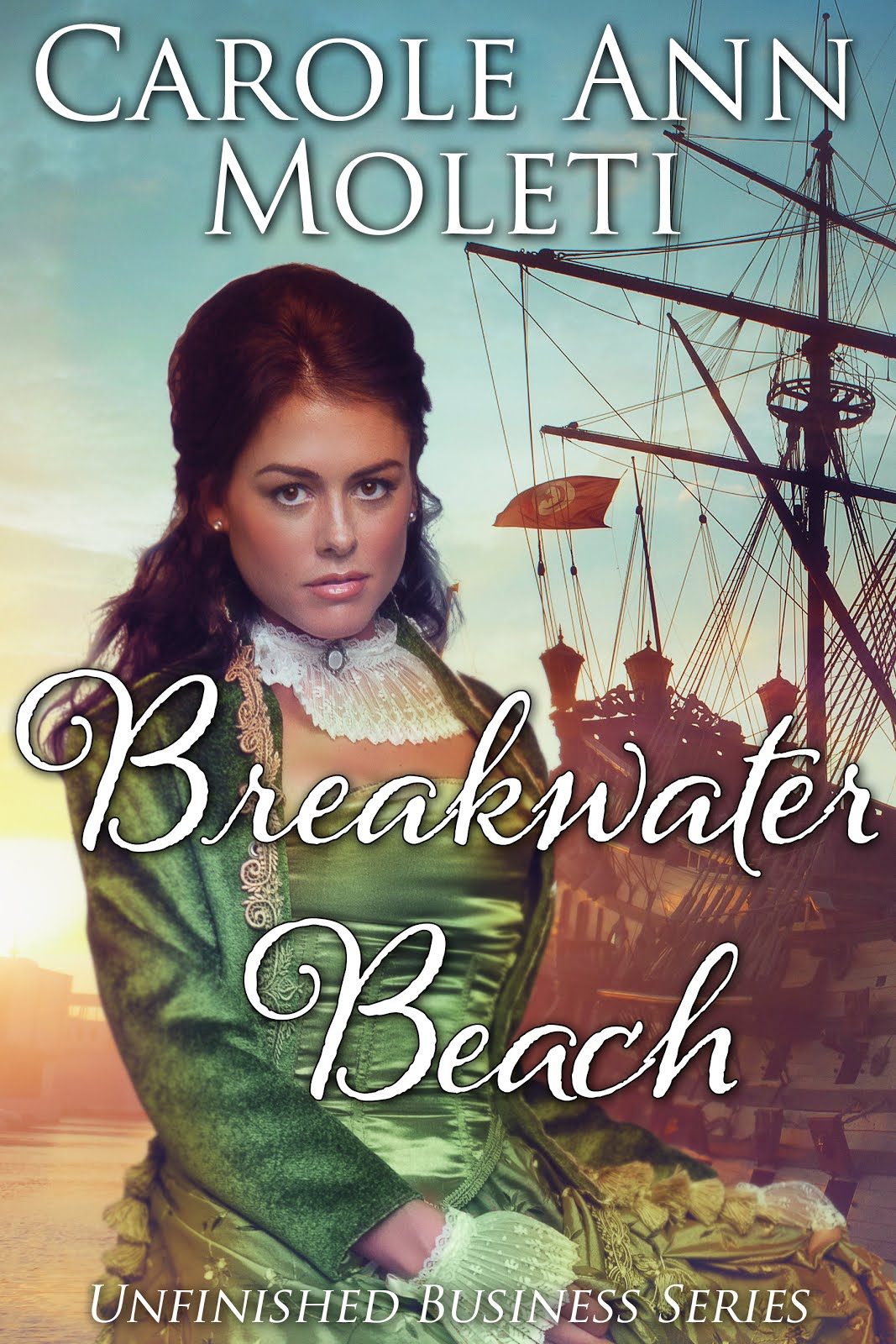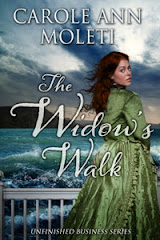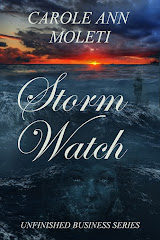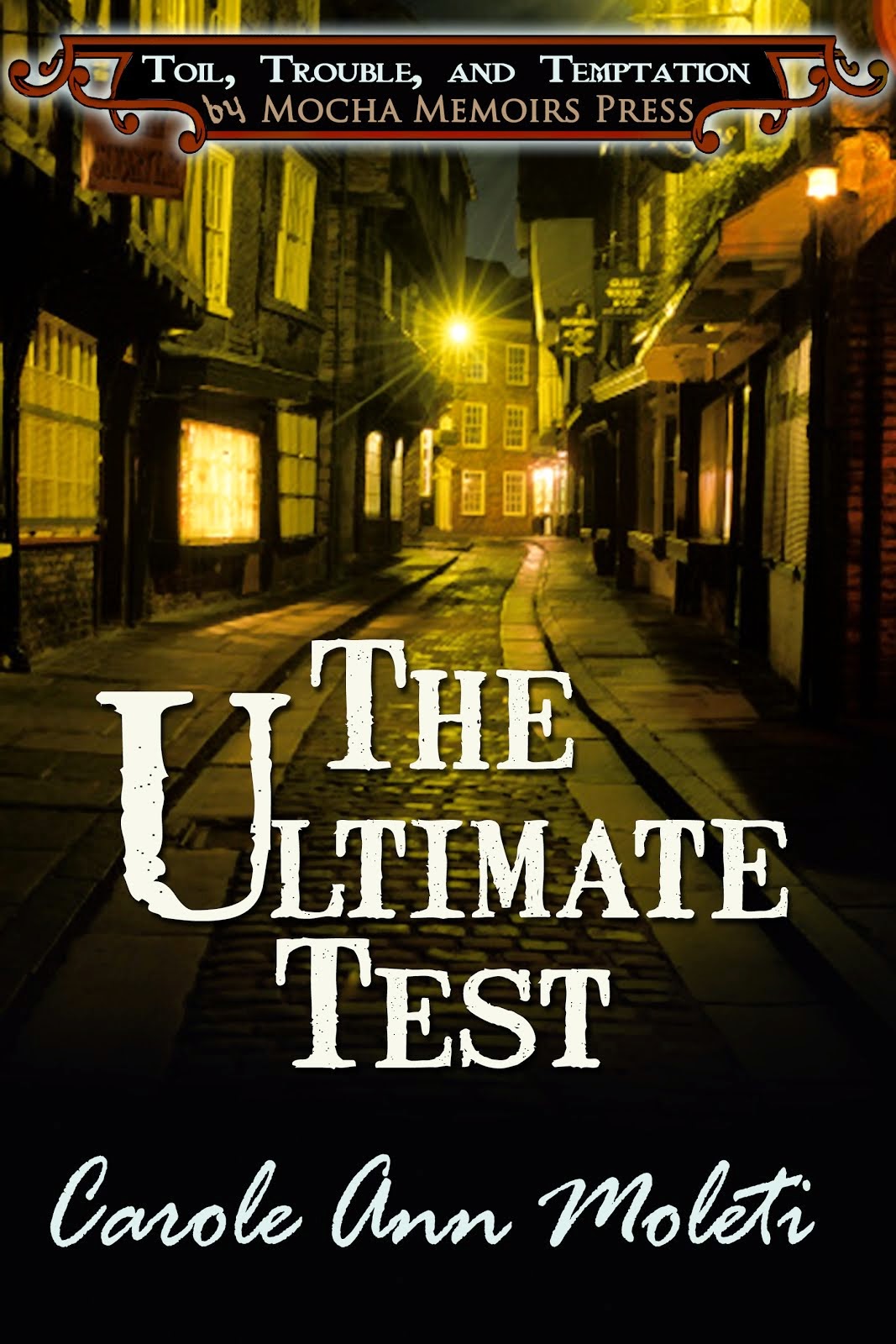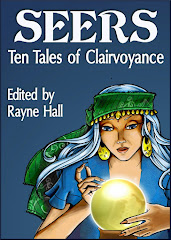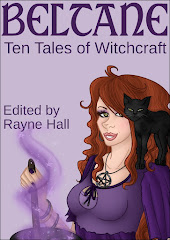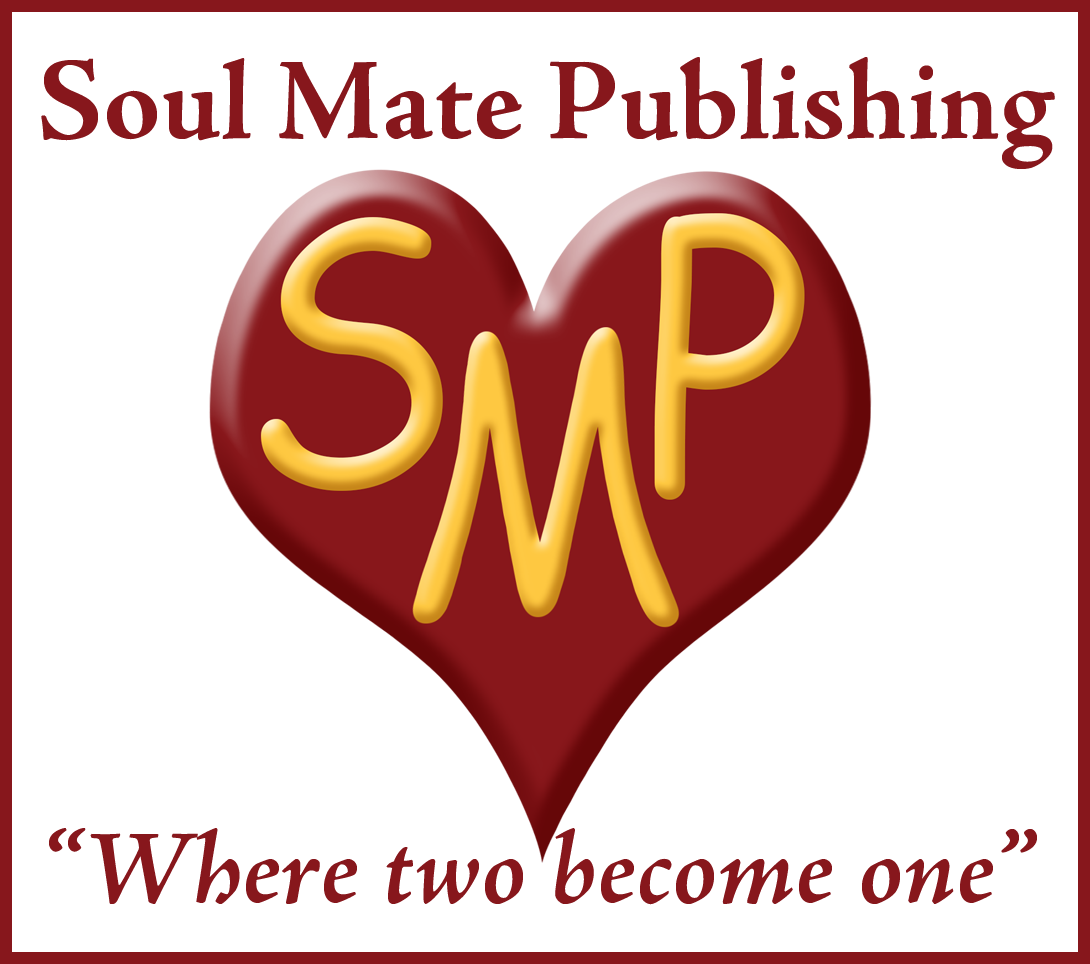Fellow Urban Fantasy author April Gray and I will be chatting with readers about the genre at the Columbus Library in New York City on November 21 from 5:45-6:45 pm. I plan to read from my novel in progress Boulevard of Bad Spells and Broken Dreams.
If you are in the area, please try and stop by. If not, feel free to forward this to anyone you think might be interested.
Monday, November 21, 2011
Thursday, November 17, 2011
Get Your Power Up: Part Two of Magical Rituals with Rayne Hall
The previous thread is still open for review and comments, but today Rayne moves on to discuss how magicians concentrate and raise the power needed to fuel their rituals.
To recap: I am thrilled to welcome Rayne Hall to my blog this week for a two part magic lesson on Magical Rituals. She has has more than twenty books published under several pen names, in several genres. She holds a degree in publishing management, and a masters in creative writing.
To recap: I am thrilled to welcome Rayne Hall to my blog this week for a two part magic lesson on Magical Rituals. She has has more than twenty books published under several pen names, in several genres. She holds a degree in publishing management, and a masters in creative writing.
Currently, she lives on the south coast of England where she writes horror and fantasy fiction, as well as puts three decades of editorial experience to the test by publishing themed anthologies.
Rayne's teaches online classes on a variety of subjects, which include copious feedback and support. Her simple, easy to understand primers on the nuances of magic are a fascinating look at various aspects of the art across a variety of magical systems. Whether you a writer, a reader, or a dabbler you'll this two part series on Magical Rituals fascinating.
Rayne's recent release, Storm Dancer, features Merida, a magician who dances for rain in the parched desert world in which she finds herself imprisoned. The novel is epic in scope and explores the concept of a djinn that possesses Dahoud, a former warrior, compelling him to commit terrible crimes against women.
He and Merida find themselves thrown together by circumstances beyond their control. Will he able to defeat his djinn, and will she be able to forgive his transgressions to accomplish the impossible and save the town entrusted to their care?
Mysterious, dark, full of political intrigue and meticulously researched, Rayne brings this Bronze Age world to life right before the reader's eyes with unique, fascinating characters, vivid detail, and a complex, compelling plot. She puts her expertise on writing fantasy, magical systems, and fight scenes to the test, leaving readers unable to resist turning the page.
If you'd like another chance to win a free electronic copy of Storm Dancer, ask a question, make a comment, or simply ask to be entered in the random drawing, and give Rayne a way to contact you.
April 2013: Fantasy, Futuristic & Paranormal Chapter of RWA
All magicians raise power to fuel their spells. If the term 'power-raising' sounds too much 'New Age' for your historical novel, you can invent a different phrase.
The magician (who can be male or female, although I use the female pronoun throughout) can raise power in many different ways, and she may use more than one source.
* She may draw the energy from within herself, by taking actions which create energy (dancing, drumming and sex are especially effective).
* Her own intense emotions (jealousy, fury, desire) can add extra fuel.
* She may tap into the existing magical energies of the environment, for example stone circles, leylines, ancient monuments, sacred sites, running water, sunlight or fire.
* She may use the magical energy contained in objects, for example crystals (especially in Wiccan witchcraft) or relics (especially in religious magic).
* She can ask gods or spirits to lend power to her magic, especially if she practices religious magic.
* She may draw on energy from other people. For example, if the whole village gathers to help a magician call rain, then those people's enthusiasm can be harnessed. An evil magician may draw her energy from her victims' pain and fear.
A magician may use more than one source of power. For example, a Wiccan may pray to the Lady and the Lord, invoke the spirits of the winds, perform the ritual on the intersection of two leylines, use a charged amethyst crystal, and dance herself into a trance.
The magician feels the power inside her body as well as around her. Some magicians perceive it as a surge of energy pulsing through the blood, others as a heat storm around them. Some say it feels like the whole body being stung with nettles inside and out, while others liken it to waltzing while tipsy on champagne. Wiccan Witches describe the power as rising out of their head and spiralling upwards in a cone shape. You can use your imagination, as long as your magician feels something.
PLOT IDEAS
* What if a magician is not able to create enough energy for an important spell?
* What if a magician accidentally summons too much energy, and the spell is far more powerful than she intended (instead of one day sunshine, she creates ten years of drought).
* What if a magician needs other people to help her with the power raising, and they refuse for religious or moral reasons?
* What if some sources of magical powers are considered taboo or forbidden? What if a desperate magician taps into one of those forbidden sources?
* What if the magician considers certain sources to be sinful or evil, but drastic circumstances force her to use them anyway?
* What if the only way to raise enough power for a much-needed spell is through sexual arousal with a partner of the opposite sex - and the only available partner is someone she hates?
In 'Storm Dancer', the magician Merida specialises in weather magic. She can call wind and rain through dancing. Additional power comes from earth energies, astronomical constellations, and the presence of fire and water. In her training, she learnt that it's forbidden to other people as a source of magicial energy - but when the other sources fail, she must ignore convention.
FOR DISCUSSION
Have you read any works of fiction which show how a magician raises power?
How does the magician in your story raise power? What does it feel like for her?
If you have questions about magic rituals and power-raising, or about any aspect of writing about magic, ask. I will be around for a week, and enjoy answering questions.
Rayne's recent release, Storm Dancer, features Merida, a magician who dances for rain in the parched desert world in which she finds herself imprisoned. The novel is epic in scope and explores the concept of a djinn that possesses Dahoud, a former warrior, compelling him to commit terrible crimes against women.
He and Merida find themselves thrown together by circumstances beyond their control. Will he able to defeat his djinn, and will she be able to forgive his transgressions to accomplish the impossible and save the town entrusted to their care?
Mysterious, dark, full of political intrigue and meticulously researched, Rayne brings this Bronze Age world to life right before the reader's eyes with unique, fascinating characters, vivid detail, and a complex, compelling plot. She puts her expertise on writing fantasy, magical systems, and fight scenes to the test, leaving readers unable to resist turning the page.
If you'd like another chance to win a free electronic copy of Storm Dancer, ask a question, make a comment, or simply ask to be entered in the random drawing, and give Rayne a way to contact you.
Rayne Hall teaches an online workshop 'Writing about Magic and Magicians'. Create believable magicians (good and evil), fictional spells which work, and plot complications when the magic goes wrong. Learn about high and low magic, witches and wizards, circle-casting and power-raising, initiation and training, tools and costumes, conflicts and secrecy, love spells and sex magic, and apply them to your novel. This is a 4-week class with 12 lessons and practical assignments. If you wish, you may submit a scene for critique at the end of the workshop.
The next dates for this workshop:
March 12, 2012: Low Country Chapter of RWA
April 2013: Fantasy, Futuristic & Paranormal Chapter of RWA
Rayne's other workshops include 'Writing Fight Scenes', 'Writing Scary Scenes' and 'The Low Word Diet'. Click here for an updated listed of upcoming workshops.
Artwork by Kuoke and LadyArmageddon. Copyright Rayne Hall
Artwork by Kuoke and LadyArmageddon. Copyright Rayne Hall
Monday, November 14, 2011
Magical Rituals In a Variety of Magical Systems With Rayne Hall
I am thrilled to welcome Rayne Hall to my blog this week for a two part lesson on Magical Rituals. She has has more than twenty books published under several pen names, in several genres. She holds a degree in publishing management, and a masters in creative writing.

On Thursday, we'll move on to to how a magician raises power to fuel a magical spell.
Rayne's recent release, Storm Dancer, features Merida, a magician who dances for rain in the parched desert world in which she finds herself imprisoned. The novel is epic in scope and explores the concept of a djinn that possesses Dahoud, a former warrior, compelling him to commit terrible crimes against women.
He and Merida find themselves thrown together by circumstances beyond their control. Will he able to defeat his djinn, and will she be able to forgive his transgressions to accomplish the impossible and save the town entrusted to their care?
Mysterious, dark, full of political intrigue and meticulously researched, Rayne brings this Bronze Age world to life right before the reader's eyes with unique, fascinating characters, vivid detail, and a complex, compelling plot. She puts her expertise on writing fantasy, magical systems, and fight scenes to the test, leaving readers unable to resist turning the page.
If you'd like a chance to win a free electronic copy of Storm Dancer, ask a question, make a comment, or simply ask to be entered in the random drawing, and give Rayne a way to contact you.
Currently, she lives on the south coast of England where she writes horror and fantasy fiction, as well as puts three decades of editorial experience to the test by publishing themed anthologies.
Rayne's teaches online classes on a variety of subjects, which include copious feedback and support. Her simple, easy to understand primers on the nuances of magic are a fascinating look at various aspects of the art across a variety of magical systems. Whether you a writer, a reader, or a dabbler you'll find this two part series on Magical Rituals and Power Raising (coming 11/17) fascinating.

All magicians use a ritual for casting spells. Although the details vary, most follow this structure. Everything I write in this article applies to males as well as females, but in this article I'll use 'she' throughout.
1. Preparation
The magician reads the instructions, locks the door, dons her robe, gets her tools ready, assembles the ingredients and so on.
2. Casting the Circle
The magician creates a circle, either physically (e.g. by drawing it with chalk on the ground) or mentally (e.g. by visualising a circle of white light around her). The circle serves to contain the power she raises, and also to protect her from harm. Dangerous spirits may be drawn by magic ritual, and the magician may be vulnerable to attack. The circle keeps her safe.
3. Invocation
The magician calls on assistance from the spirit world. This may be a prayer to her god or goddess with a request that they lend a helping hand, an invitation to ancestral spirits to join her, or a summoning of a demon. In religious magic, this may be a prayer, or a long and complex rite. In other systems, it may be short or even left out. In high magic, the spirits are usually 'summoned'; in Wiccan witchcraft, they are 'invoked' and 'invited'. Sometimes, this phase also includes an offering to the gods or spirits, for example, a libation of wine or milk poured at the base of a tree, or - in the case of darker magic - a bowl of blood to welcome the demon.
You can deal with the invocation part in just a few words, for example, >After a brief prayer to Hekate, she...< or >She cast the circle, invoked the spirit of Saint Whatshisname, and...<
4. Altering the State of Consciousness
The magician changes how her brain functions, to make it receptive to magic. Often, this involves going into a trance. Chanting, dancing or drumming work well for this. Some magicians use deep meditation, others take mind-altering drugs as a short-cut.
5. Raising Power
Magic needs energy, and the magician taps into an energy source or creates energy. This is an important phase of the ritual; without it, magic will not work. More about this in the next blog post this Thursday, November 17.
6. Speaking the Spell
The magician speaks or chants the words of the spell. In some magic systems (such as ancient Egyptian magic), it's essential to get the words, pronunciations and intonations exactly right. In others (such as Wiccan witchcraft) the words are merely a vehicle by which the spell travels, and what matters is the intent, i.e. the magician needs to concentrate fully on the purpose of the spell.
The spells are usually short and rhythmical, repeating important words. Readers love it if you include a line or two from the spell. Just resist the temptation to insert a three-hundred-line poem.
In Shamanism, this is the stage during which the shaman travels to the spirit world, and in Necromancy, this is when the necromancer asks questions of the deceased person.
7. Dismissing the Spirits
Once the spell is cast, the magician thanks the spirits for their assistance (if she invited them) or dismisses them (if she summoned them), or says another prayer to her goddess or god.
8. Closing the circle
The magician dismantles the physical circle or visualises the imaginary circle as fading.
9. Grounding
The magician needs to come back to reality, especially if the ritual involved journeying to the spirit world. The quickest and easiest is to drink some water and eat a little bread.
10. Keeping Records
Like a scientist conducting experiments, the magician records what exactly she did during the ritual, with which ingredients, what the purpose was, how it felt, and so on. This allows her to keep track of the efficacy of the magic, and learn for future rituals. An alchemist's record-keeping is probably factual and analytical, while a Wiccan witch's entry into her 'Book of Shadows' is more about emotions and perceptions.
11. Resting
Magic is mentally, emotionally and physically exhausting. After working major magic, your character needs a rest. If the plot permits, allow her a nap. If you're a devious writer, you can make things difficult for her, and let her worst enemy attack just at this moment when she's weak and vulnerable.
DIFFERENCES
The details of the ritual vary, depending on the system of magic, the magician's skill level, on her personal preference, and on how much time she has available. You need not follow this model exactly, but can tweak it so it suits your novel's plot.
Stages 2, 3, 4 and 5 are sometimes carried out in a different order or combined. For example, by drumming and dancing, the shaman can change her consciousness and raise power at the same time.
The ritual can take as little as two seconds or as long as a two days. A public ritual is likely to take longer than a private one, because the magician wants to please the audience.
An experienced magician may use a shorter ritual than an inexperienced one. Ritual helps the magic, and a novice needs all the help she can get. An inexperienced magician gets best results if she adheres to the ritual precisely and takes a lot of time. A veteran mage can do something in minutes or seconds because she has the experience. That's as with other things: knitting your first pair of socks is going to take a long time, but by the time you've completed your hundredth pair, you can produce them really fast.
PLOT IDEAS
* What if a magician normally uses an elaborate ritual, but an emergency happens and she does not have enough time?
* What if a magician needs certain ingredients to cast her spell, but she can't obtain them?
* What if a magician goes into trance for a magic ritual, and something terrible happens which would recquire her full alert consciousness?
* What if a magician desperately needs to work magic, but she can't concentrate enough to make it work because of scary distractions?
* What if the magician is physically and mentally exhausted after a ritual, and the evil enemy chooses this time to attack her?
In 'Storm Dancer', the magician Merida is a stickler for correct procedure. She doesn't believe it's possible to work magic in any other way. But then she has to do just that - in increasingly difficult circumstances. I've had fun making things difficult for her.
Several times in the story, she exhausts herself working magic - and the villain takes advantage of her weak state when she cannot defend herself.
For Discussion
Have you read any works of fiction which showed some or all of the ritual?
Are you currently working on a story about magic? Will you include a magic ritual? What is your magician aiming to achieve with the spell?
If you have questions about magic rituals, or about any aspect of writing about magic, ask. I will be around for a week, and enjoy answering questions.
Rayne's recent release, Storm Dancer, features Merida, a magician who dances for rain in the parched desert world in which she finds herself imprisoned. The novel is epic in scope and explores the concept of a djinn that possesses Dahoud, a former warrior, compelling him to commit terrible crimes against women.
He and Merida find themselves thrown together by circumstances beyond their control. Will he able to defeat his djinn, and will she be able to forgive his transgressions to accomplish the impossible and save the town entrusted to their care?
Mysterious, dark, full of political intrigue and meticulously researched, Rayne brings this Bronze Age world to life right before the reader's eyes with unique, fascinating characters, vivid detail, and a complex, compelling plot. She puts her expertise on writing fantasy, magical systems, and fight scenes to the test, leaving readers unable to resist turning the page.
If you'd like a chance to win a free electronic copy of Storm Dancer, ask a question, make a comment, or simply ask to be entered in the random drawing, and give Rayne a way to contact you.
Rayne Hall teaches an online workshop 'Writing about Magic and Magicians'. Create believable magicians (good and evil), fictional spells which work, and plot complications when the magic goes wrong. Learn about high and low magic, witches and wizards, circle-casting and power-raising, initiation and training, tools and costumes, conflicts and secrecy, love spells and sex magic, and apply them to your novel. This is a 4-week class with 12 lessons and practical assignments. If you wish, you may submit a scene for critique at the end of the workshop.
The next dates for this workshop:
March 12, 2012: Low Country Chapter of RWA
April 2013: Fantasy, Futuristic & Paranormal Chapter of RWA
Rayne's other workshops include 'Writing Fight Scenes', 'Writing Scary Scenes' and 'The Low Word Diet'. Click here for an updated listed of upcoming workshops.
Monday, November 7, 2011
Welcoming John Blackport Discussing His Military Fantasy Release: Raingun
This week John Blackport is here to tell us about his recent release Raingun, a mix of military fiction with fantasy The book has a haunting cover, and an even more haunting excerpt.
Rick Rivoire is flush with money, women, and prospects. He protects his country as one of the Rainguns, an elite regiment of spellcasting cavalry.
But national policy drifts ominously into slavery and religious persecution, sparking rebellion. Joining the rebels could land Rick on a prison ship, in slave-irons --- or atop the same gallows where he watched his father hang.
The alternative looks no brighter. The status quo imperils Rick’s hard-won self-respect. Supporting tyranny would doom his dream to emulate the valiant swordswoman who braved a den of monsters to rescue the lonely, terrified nine-year-old boy he once was.
Rick can’t stay above the fray forever. He must either defend a government whose actions disgust him --- or risk everything he has.
This story unfolds in a world of bloodthirsty pirates, brave musketeers, and vile monsters. Its target audience is anyone who has ever wrestled with questions of whether, and how, to risk opposing the actions of their country.
Can you tell us a little about why you wrote Raingun?
Raingun’s protagonist is a dragoon in the light cavalry, sharing battlefield with lancers, pikemen, musketeers --- and wizards. Most magic in this world is economical: after an initial investment, it’s cheap and renewable. Wizards can give enemy units a bad time all by themselves, but they’re one in a million. Most magic is cast by “mages”, who hold their own but are often overshadowed by sabers, muskets, cannon, and even arrows.
Rick Rivoire is born poor. He is offered a commission --- and money to buy it --- by a combination of luck and courage when his hometown is attacked by pirates. He takes pride in protecting his country. But as his country’s policies become cruel, he risks his new-found rank and privilege, by considering rebellion.
Raingun doesn’t focus on what it’s like to be a soldier. Instead, it focuses on the struggles ordinary people face when they doubt the honesty and sincerity of their government. What freedoms do you trade for security? When you disapprove of your government’s actions, when do you speak out? When do you draw lines in the sand? And when do you rebel? What do you do if those close to you choose to stand apart?
Where did you develop your expertise on military fiction?
I guess my expertise, if you can call it that, comes from reading a lot of history and historical fiction. My favorites are Bernard Cornwell and George Macdonald Fraser.
I've enjoyed O'Brian and Forester... I especially like the way they call attention to the challenges their heroes face outside of battle. They can't assume today will be easy just because they don't smell powder smoke.
And are these stories loosely based on any historical events, time, or place?
I've gone out of my way to avoid getting too allegorical. If I wanted to write about slavery in, say,New Orleans or the Barbary Coast at specific points in time, I'd have done that. That's a worthy pursuit, but it is not a necessary part of making entertaining stories with entertaining characters.
Yes, that is what it feels like to me. I recognize a lot of parallels to history and to certain places, but just can't place them. David Anthony Durham did that with Acacia.
John, can you tell us why you're donating half of this e-book's royalties will go to the Scleroderma Research Foundation? My cousin had scleroderma.
My brother-in-law Perry suffered from scleroderma, and died tragically at a young age. I want this book to help fight the disease that killed him.
The Scleroderma Research Foundation is a 501(c)3 nonprofit dedicated to finding a cure.
Where can readers get a copy of Raingun?
It's available in most electronic formats and on
They can read a sample here
The website, with contact information is www.raingun.com
Stop back soon, John, and let us know when the rest of the series is published.
Yes, I will. Resolution will be next.
John Blackport is a New England attorney who prefers to keep his writing and professional identities separate.
Sunday, November 6, 2011
Hannah Townsend Lawrence Liked My Performance
The ghost tour of the historic Lawrence Cemetery was fantastic yesterday. We had a great crowd and a very nice, albeit chilly day.
It took me nearly two hours to get dressed, and had to enlist the help of my friend (and seamstress) Janet to create a bustle from the extra folds of fabric meant to accomodate a hoop (which the historical society doesn't have). The pantalettes gave me some additional insulation, but the shoes were KILLERS, standing on squishy, cold, uneven ground.
There are hooks and eyes over hooks and eyes on the jacket and the BACK of the skirt, then the lace gets in the way while you're trying to do them up. I made the mistake of getting a haircut last week, and there was nothing to anchor the hat to. So I had to rig up a hairpiece so the hat would stay on my head at just the right angle.
Those ladies really needed their maids, and how the hell did they walk and dance without tripping?
Anyway, it was great and everyone murmured how beautiful I looked as I swept into the cemetery. Well, limped and tried not to show it.
The most cool thing was, after the performance, I used the Paranormal States application. There was no electromagnetic activity detected in any other spot, including all the grave sites of the other ghosts, until I walked, still in costume, to Hannah's. The meter hummed like an F-16 and almost went off the dial. I didn't get any foreboding vibes, so I guess she was pleased.
Check out my pictures on Facebook. The video is too long to upload here so I will have to post it on YouTube.
It took me nearly two hours to get dressed, and had to enlist the help of my friend (and seamstress) Janet to create a bustle from the extra folds of fabric meant to accomodate a hoop (which the historical society doesn't have). The pantalettes gave me some additional insulation, but the shoes were KILLERS, standing on squishy, cold, uneven ground.
There are hooks and eyes over hooks and eyes on the jacket and the BACK of the skirt, then the lace gets in the way while you're trying to do them up. I made the mistake of getting a haircut last week, and there was nothing to anchor the hat to. So I had to rig up a hairpiece so the hat would stay on my head at just the right angle.
Those ladies really needed their maids, and how the hell did they walk and dance without tripping?
Anyway, it was great and everyone murmured how beautiful I looked as I swept into the cemetery. Well, limped and tried not to show it.
The most cool thing was, after the performance, I used the Paranormal States application. There was no electromagnetic activity detected in any other spot, including all the grave sites of the other ghosts, until I walked, still in costume, to Hannah's. The meter hummed like an F-16 and almost went off the dial. I didn't get any foreboding vibes, so I guess she was pleased.
Check out my pictures on Facebook. The video is too long to upload here so I will have to post it on YouTube.
Subscribe to:
Posts (Atom)
